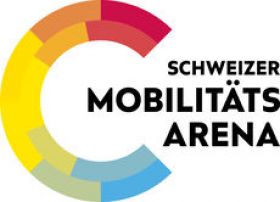Elon Musk green-lit to build high-speed underground airport train in Chicago
The Boring Company, headed by Tesla and SpaceX CEO Elon Musk, has won a bid to build a high-speed train from Chicago’s O'Hare International Airport to downtown.
The new rail line, or Chicago Express Loop, will see 12-minute trips in electric vehicles called "skates," from the airport's new terminals to the Block 37 super-station downtown. This trip usually takes approximately 30-40 minutes, whether by train via Chicago's Blue Line, or by cab, Uber or Lyft.
Skates will leave each station as frequently as every 30 seconds, operating 20 hours per day, seven days a week.
According to The Boring Company, fares have not been finalized, but "will be less than half the typical price of taxi/ride-share services, though higher than the Blue Line."
Passengers will hop into an eight to 16-seat vehicle travelling up to 150 miles per hour through The Boring Company's 12-feet-wide tunnels, sitting 30 to 60 feet underground. Single passenger vehicles will also be available, but no other information has been provided on this.
Each battery-powered electric skate has been based on the Tesla Model X, and will be mechanically confined to a concrete track. Each skate features a climate controlled cabin, luggage storage space, and Wi-Fi.
How much will this all cost? According to the Chicago Sun Times, The Boring Company says it can install the whole thing, including the new airport station and Block 37 renovation, for under $1 billion. The Boring Company says the project will be 100 percent privately funded.
The bid win doesn't come as a huge surprise, as Musk tweeted plans to work with the city of Chicago on the airport rail project in November, and made the bid for The Boring Company in February.
14. Juni 2018
AUTOMAT VOR ORT: KONFERENZ AUTOMATICAR 2020
Am 16. September findet der Fachkongress AUTOMATICAR zum 2. Mal änlässlich der ...
»weiterlesenAUTOMAT vor Ort: Konferenz AUTOMATICAR
Am 12. April fand das erste Mal die von der Mobilitätsakademie des TCS organisierte ...
»weiterlesenAutomat vor Ort: EPTA Conference 2017
EPTA Conference 2017 „Shaping the Future of Mobility“ Luzern, Verkehrshaus, Mittwoch, 8. ...
»weiterlesenAuto-mat vor Ort: Automatische Shuttlebusse tpf
Am 22. September war www.auto-mat.ch live vor Ort, als die ersten beiden automatischen ...
»weiterlesen


